View our OU Health locations and providers to find a stroke specialist that works best for you.
View Locations View Providers
As the fifth highest cause of death in Oklahoma and the United States
— and the
leading cause of disability
— stroke affects about 800,000 people in the United States each year. At
OU Health, stroke treatment results meet or exceed national standards.
Stroke care has significantly advanced during the last 25 years. A complex,
multidisciplinary approach including timely evaluation in the emergency
department, supportive management during hospitalization and optimal planning
for rehabilitation is required to ensure the best possible outcome. We
are proud to offer the highest level of stroke care at OU Health's Comprehensive
Stroke Center, setting high goals for administration of IV tPA within
30 minutes and endovascular thrombectomy within 60 minutes of patient
arrival. Our patients are comprehensively evaluated to determine the cause
of their stroke and offered inclusive rehabilitation program.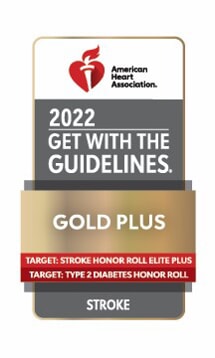
Get expert care at the Comprehensive Stroke Center at OU Health University of Oklahoma Medical Center in Oklahoma City, the first hospital in Oklahoma to achieve certification for excellence in stroke care from The Joint Commission, a nationally recognized accrediting agency. In 2022, our Comprehensive Stroke Center was awarded the American Heart Association/American Stroke Association’s Stroke Gold Plus Quality Achievement Award and the Association’s Target: Stroke Honor Roll Elite Plus Award. These achievements demonstrate that the care we provide follows the most stringent standards of stroke care supported by the most up to date, evidence-based practice.
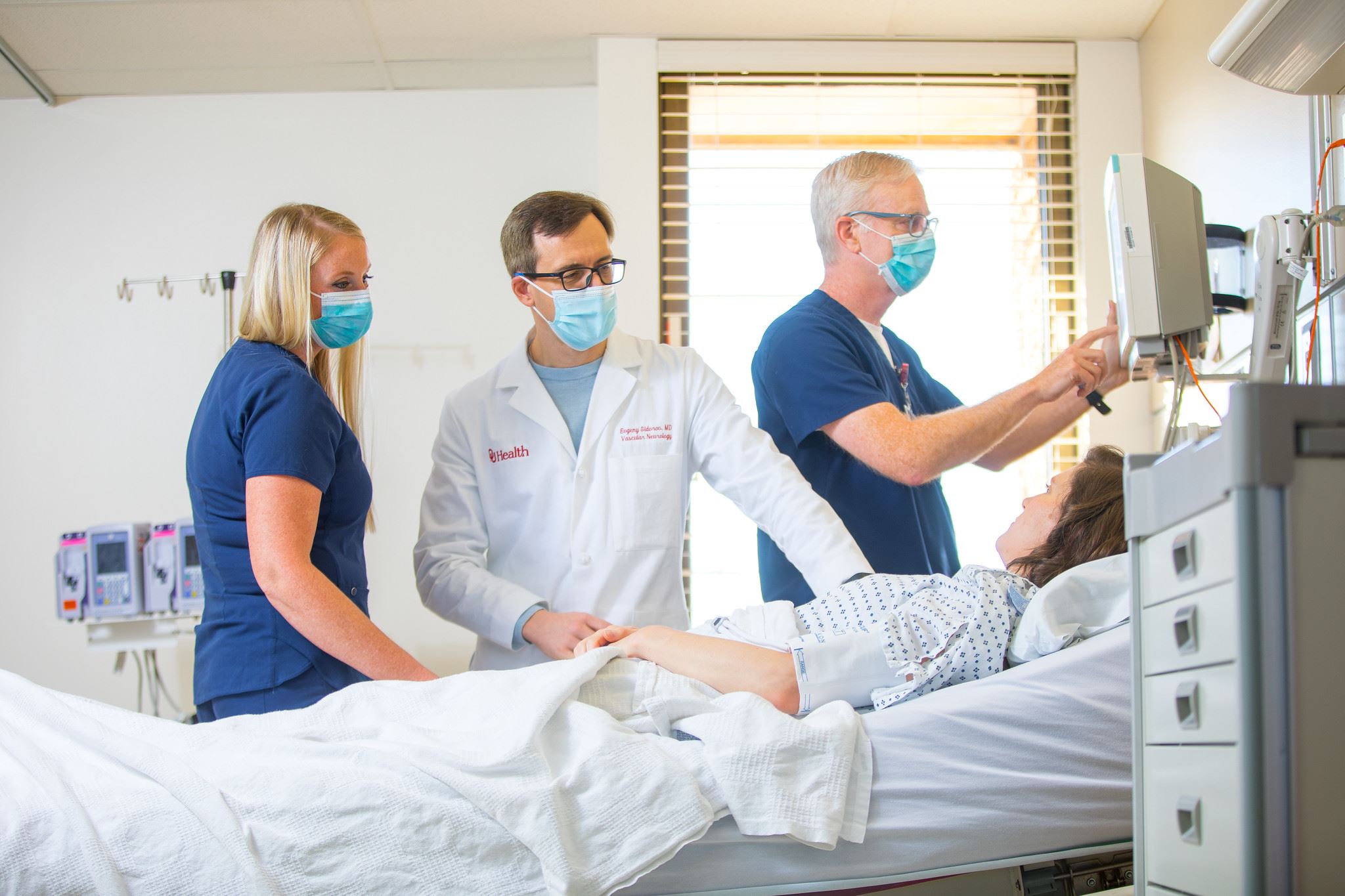
View our OU Health locations and providers to find a stroke specialist that works best for you.
View Locations View ProvidersA stroke happens when blood stops flowing to your brain and damages surrounding cells. Every second counts. Recognize the signs of stroke—and get care now.
If you are a loved one experience these signs, BE FAST in seeking medical treatment by calling 911. Time is Brain and every second counts.
You or a loved one may experience one of three types of stroke:
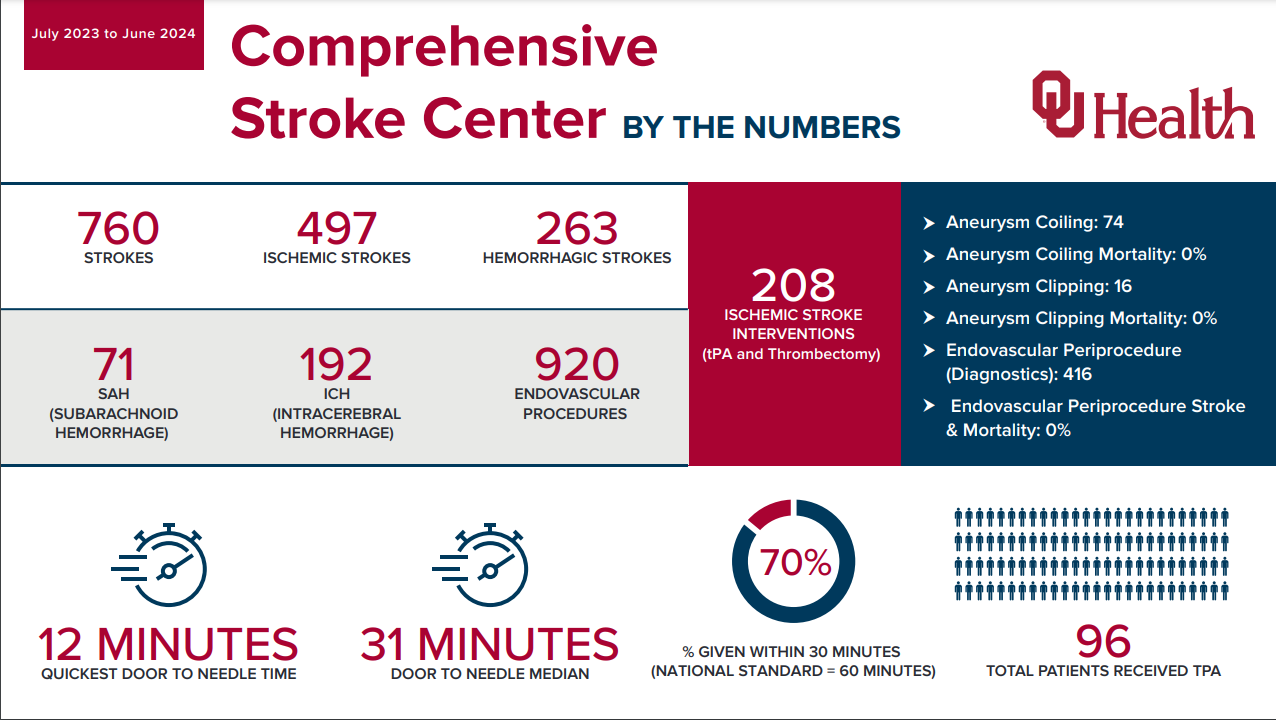
We provide around-the-clock access to the latest imaging technology for the most accurate diagnosis:
At OU Health's Comprehensive Stroke Center, you benefit from the healthcare expertise and advanced infrastructure for stroke care, which includes the coordinated efforts of the:
All departments work together to enhance your outcome after a stroke while decreasing complications and length of your hospital stay.
At our Comprehensive Stroke Center, you'll work with some of the nation's most experienced neuroscience physicians. These board-certified and fellowship-trained vascular neurologists, vascular neurosurgeons, neurocritical care specialists, cardiologists, vascular surgeons and neuroradiologists collaborate as a multidisciplinary care team to treat the most complex instances of stroke in people of all ages. Our Center has the only dual-trained neurosurgeons in the region with expertise in cerebrovascular conditions who regularly treat more complex situations than any other physicians in the area.
You and your OU Health neurosciences team work together to ensure you receive the most appropriate care so you can return to as much function as possible. You and your care team also create an individualized plan with activities ranging from lifestyle changes to sophisticated testing and treatment based on the latest scientific information to help decrease your risk and prevent future strokes. If needed, your OU Health team continues to work with you and your family after you leave the hospital.
OU Health's Comprehensive Stroke Center offers emergent and elective medical and surgical care for all types of stroke. This includes:
No matter where you live in Oklahoma or across the five-state region, you can gain access to top-quality stroke care through local hospitals that participate in OU Health telestroke digital health services. Ask your hospital about live, real-time OU Health telestroke services available 24/7/365 that connect you within minutes to experienced stroke care experts at the OU Health Comprehensive Stroke Center. This fast action helps reduce the time needed to deliver clot-dissolving medications, if appropriate, and other stroke treatments or to quickly set up a transfer to higher levels of care, all of which improve your outcomes.
We are proud to have an academic partnership with a world leading healthcare institution. Our patients may be part of prominent national and international clinical trials, which helps to advance the field of stroke and lead to the development of new treatments. OU Health's Comprehensive Stroke Center is a part of StrokeNet – The NIH sponsored network for recruitment of patients into clinical trials for ischemic and hemorrhagic stroke. This partnership allows for the opportunity of researching the newest technological methods. OU's research team also evaluates genetic causes of stroke in an effort to improve stroke care.
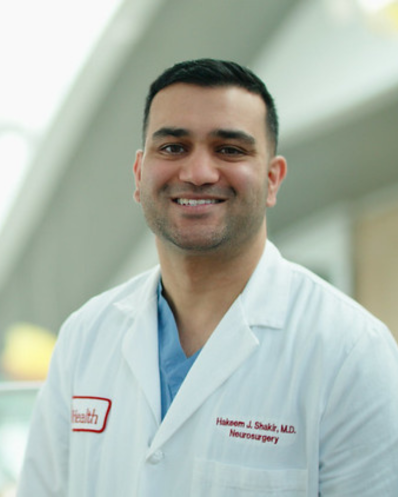

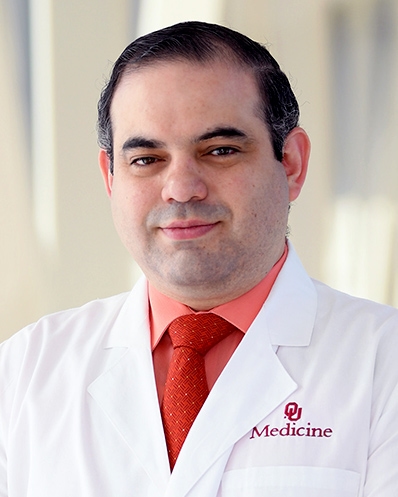


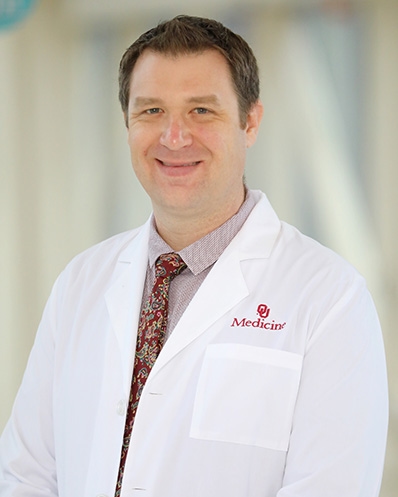

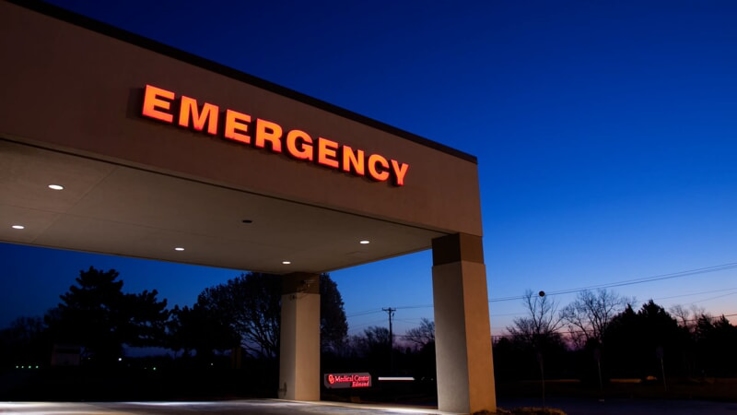
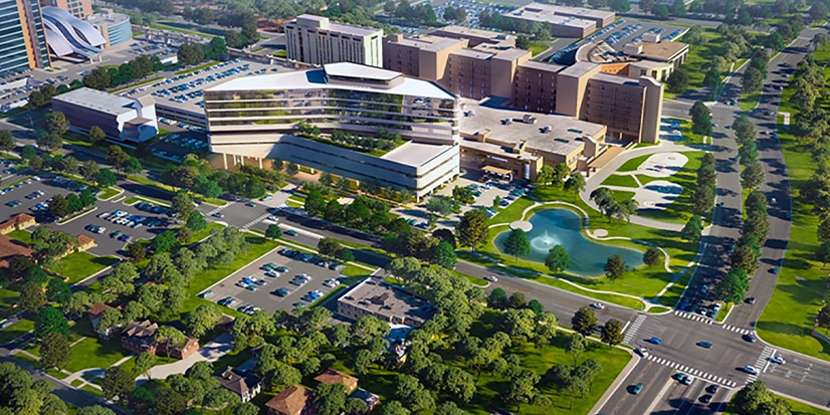
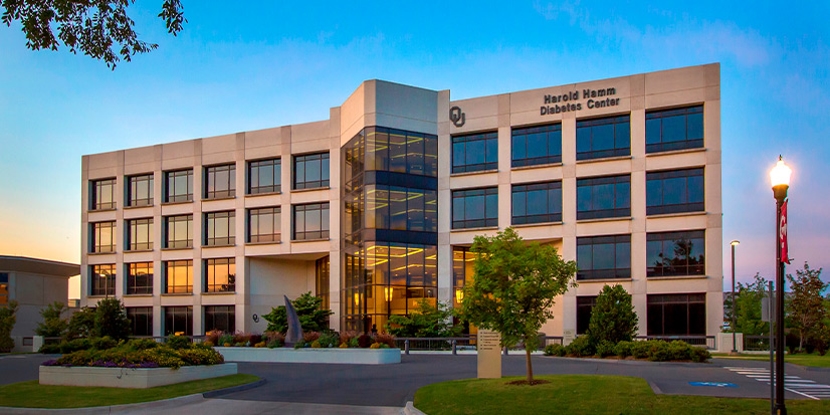
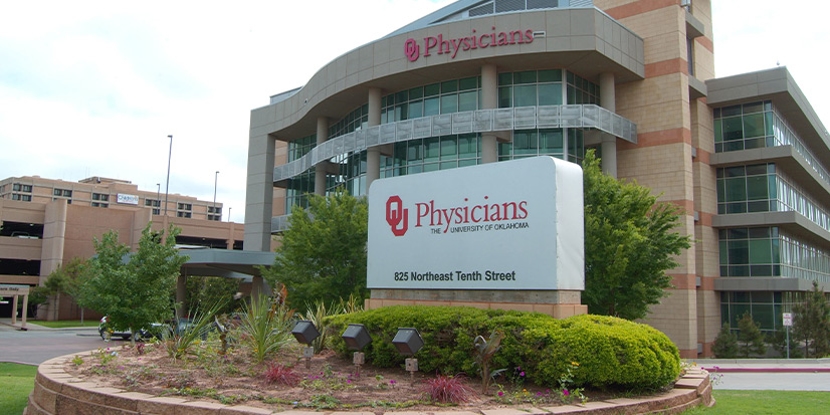
A day of shopping and running errands in McAlester, Oklahoma, started out well for Michiel and Steffanee Edwards. However, a couple of hours into the ...
In 2018, Sheila Campbell dropped her son, Quinton, at work early so she could borrow his car. As an OU Health employee recovering from hernia surgery, ...
OU Health in Oklahoma City is teaming with McAlester Regional Health Center to provide adult neuroscience services to people in southeastern Oklahoma. ...